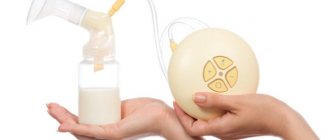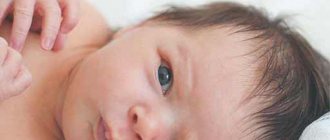ARVI is a common problem in the daily life of every person, especially during the off-season, when one feels unwell, has a runny nose and sore throat, which is often accompanied by an increase in temperature. Some women do not attach much importance to such symptoms, and sometimes even suffer from colds on their feet, continuing their active lifestyle and work activities. But when breastfeeding, treatment of ARVI becomes the number one problem, because in no case can you infect the child. In this case, the young mother has many questions about feeding the baby or medications allowed during lactation.
When breastfeeding, treatment of ARVI becomes one of the most important tasks, because in no case can you infect the child.
Is it possible to breastfeed during ARVI?
Leading pediatricians have long given the answer to this question - there is no need to stop feeding a child if he has a cold. This is due to the fact that the viral disease is transmitted only by airborne droplets, that is, only some particles of the virus enter the baby through breast milk, which are not capable of infecting the baby; rather, on the contrary, they will strengthen the baby’s immunity even better. But you shouldn’t kiss the baby, sneeze or cough in his presence during this period, as this increases the risk of microbes getting from the mother’s mucous membrane to the baby. Even in cases where the baby does get sick or catches the infection first, there is no need to stop breastfeeding; mother’s milk itself is a cure for all diseases for the baby; you can’t think of a better treatment.
How does ARVI progress?
The process of infection with ARVI during lactation occurs in the same way as in an ordinary person - a nursing woman only needs to visit crowded places where an already infected person can cough and sneeze, or have close contact with a sick person, since the infection is transmitted by airborne droplets. It is believed that it is easier for a nursing mother to get sick, because her respiratory organs work more efficiently than those of a woman in her normal state. Weakened immunity, frequent lack of sleep, general malaise and stress take their toll; until recently, a healthy mother begins to feel the first signs of the disease - a runny nose, cough or sore throat. Typically, this condition lasts from 5 days to a week.
What to do to avoid infecting a child?
The fact that a cold is not transmitted through breast milk does not mean that the baby has no chance of acquiring the infection. If there is constant contact between a sick mother and baby, a protective mask alone will not help, and in order not to infect the newborn, you should follow certain rules:
- The most effective method is considered to be isolation of the sick person, but if it is the mother, then in the first months of the baby’s life this is excluded;
- The sleep of the child and the infected mother should definitely be separate; it is better to put the baby to sleep in a separate room or at least in his own crib;
- everything that the baby touches must be carefully treated and washed: sterilize nipples and bottles, feed from separate dishes, wash clothes separately from adult clothes, wash toys periodically;
- in the absence of a child in the room, be sure to ventilate the room, monitor the temperature and humidity;
- if the mother is ill, do not stop walking with the baby outside, dad or grandmother can walk with the child even in cloudy weather, moist air is also good for the baby;
- periodically wipe dust in places where the baby spends the most time;
- there is no need to wrap up the child, you need to dress the baby like yourself, so that it is comfortable, but not hot;
- If possible, avoid staying in public places during a wave of diseases and do not invite guests to your home if someone is sick in the house;
- use a gauze bandage not only for the sick, but also for all family members;
- It would not be amiss to quartz or diffuse aromatic oils, for example, conifers, as well as the smell of onions and garlic - this will help kill microbes;
- It is worth monitoring the hygienic toilet of the baby and parents, washing hands and face more often;
- During illness, it is better to replace ordinary drinking water with fruit drinks or drinks with healthy additives - rose hips, honey, lemon or ginger;
- during an epidemic, it is recommended to use drugs to increase immunity, so before going for a walk, mom can use Oxolinic ointment;
- You need to constantly monitor the child’s health, and if a runny nose appears, take appropriate measures immediately.
Sticking to bed rest is one of the most useful and difficult actions to take if ARVI during lactation takes you by surprise.
Treatment recommendations
Many mothers, even during pregnancy, try to stock up on medications that are also recommended for breastfeeding women, but ARVI may not occur at this time, and at the right time there will be no proven remedies at home. In this case, when the first symptoms appear, you should immediately call a doctor - the therapist will tell you how to treat a cold while breastfeeding. Timely treatment will help you avoid getting sick even more and avoid possible complications. In addition to taking medications, you should follow generally accepted recommendations:
- adhere to bed rest if acute respiratory infections during GW are taken by surprise;
- drink more fluids, preferably warm - recommended for both colds and flu, drinking plenty of fluids will get rid of toxins and excess bacteria in the body;
- Before taking medication, you can try to get rid of the disease on your own - chicken broth, citrus fruits, tea with honey, fruit drinks;
- You shouldn’t force yourself to eat, if you don’t feel like eating, you can refuse lunch or replace it with a warm drink so that the lack of food does not affect the milk.
ARVI during breastfeeding
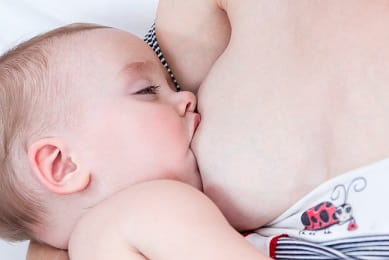
ARVI during breastfeeding requires a special approach to treatment. This is due to the fact that not all medications are allowed for a breastfeeding woman. For this reason, it is necessary to know how to treat viral diseases during lactation.
Table of contents
|
ARVI during breastfeeding, symptoms
During breastfeeding, the mother's body is more susceptible to respiratory diseases, since the immune defense is weakened.
ARVI is a common pathology, so you need to know how the disease manifests itself.
Symptoms of a respiratory viral disease:
- cough;
- sneezing;
- a sore throat;
- runny nose;
- hyperthermia up to 37-39°C.
Associated symptoms are chills, malaise, weakness, and drowsiness.
Respiratory diseases can lead to a decrease in the volume of milk secretion.
Is it possible to breastfeed, measures to protect the baby
It is recommended to continue breastfeeding in case of respiratory pathologies.
During illness, the mother develops antibodies to the virus that caused the illness.
Antibodies are transferred from a woman's milk to her baby, protecting him from infection.
Breastfeeding is permissible only if the mother does not take any medications that have a negative effect on the baby.
If medications that are dangerous to the baby are used, breastfeeding must be stopped.
To maintain lactation function for the entire course of therapy, you should express milk at least 5 times a day.
You need to express until the last drop so that milk secretion does not stagnate. Otherwise, mastitis may occur.
You can express either by hand or using a breast pump. A breast pump can be used manual or electric.
The electric one sucks out milk secretions more effectively and reduces the risk of milk stagnation.
The force of discharge is adjustable to prevent nipple cracks.
During illness, it is recommended to drink at least 2-2.5 liters of water.
This is necessary to preserve lactation function, as well as to prevent dehydration, dryness of the mucous membranes of the nose and oral tract.
You are allowed to drink fruit drinks, teas, compotes, and juices. They should be warm or at room temperature.
To reduce the risk of ARVI, it is recommended to maintain personal hygiene and wear a mask whenever there is contact with the child.
A mask is also worn during breastfeeding.
The mask protects the baby from getting large amounts of viruses during sneezing and coughing.
It is recommended to change the mask every 2 hours. It is better to use disposable protective equipment.
The room where the child lives should be wet cleaned daily. It is also necessary to ventilate the room at least 2 times a day.
It is advisable to install an air humidifier in the room or cover the radiators with a damp sheet (towel).
The mother should use personal hygiene products (towels and others).
It is advisable to sleep separately from the baby. It is not advisable for mother and baby to sleep together during illness.
ARVI in a nursing mother, treatment of respiratory viral diseases
Therapy for respiratory diseases consists of gargling, rinsing the nose, taking antiviral medications and other drugs.
First of all, etiotropic therapy is carried out, aimed at combating the causative agent of the disease.
Antiviral drugs are prescribed.
The safest for a nursing mother are:
- Anaferon tablets;
- Viferon in candles.
Viferon is considered a more effective drug. It reduces the concentration of viral agents in the blood and mucus from the nasal passages.
While taking the drug, the runny nose goes away within a few days, the fever goes away, and overall health improves.
If hyperthermia is present, antipyretics are indicated. Nursing women are allowed to take
Paracetamol in adult dosage (500 mg).
If Paracetamol is not effective, it is allowed to use Ibuprofen (Nurofen) in an adult dosage (200 or 400 mg).
When the temperature does not decrease with Paracetamol and Ibuprofen, it is recommended to call an ambulance.
If there is a severe runny nose, the nose should be rinsed with saline or sea salt.
For rinsing you will need a syringe or bulb.
Before rinsing, vasoconstrictor drops (Nazivin, Otrivin or others) should be instilled to relieve swelling. This will improve the effect of the procedure.
It is recommended to rinse up to 5-6 times a day.
Washing with chamomile solution is allowed.
Useful tips for mothers: NURSING HEALTHY AND BEAUTIFUL MOTHER
If you have pharyngitis, accompanied by a sore throat and hoarseness, it is necessary to gargle.
A solution of Miramistin 1%, Furacilin, Rotocan, Chlorhexidine, chamomile decoction, echinacea, calendula and others are suitable for the procedure.
Rinsing is carried out 20-30 minutes before or after meals.
The frequency of manipulation is up to 5-8 times a day, depending on the severity of symptoms.
You can use throat sprays:
- Chlorophyllipt;
- Kameton and others.
If you have a cough, it is recommended to drink herbal remedies, such as:
- Gedelix;
- Mukaltin;
- Lazolvan and others.
For nursing mothers, inhalation procedures are effective for coughing. Inhalations stop dry coughs and make sputum less viscous.
Sputum clears up better after 2-3 procedures.
For inhalation during feeding, it is recommended to use saline solution. It does not cause allergies, but is good for dry coughs.
Inhalation with saline solution is recommended using a nebulizer.
The device sprays the solution into small particles that penetrate even small bronchi.
This helps to quickly stop coughing and prevent the occurrence of bronchitis and pneumonia.
Inhalation procedures with Lazolvan should also be carried out using a nebulizer. The drug is very effective for viscous sputum.
It is allowed to do inhalations with herbs. A steam inhaler is used here.
Inhalations should not be done if there is a high temperature. Otherwise, the condition may worsen.
To increase immune defense, vitamin C is prescribed. It is safe for infants.
It is not advisable to take medicinal herbs orally on your own. This may cause an allergic reaction in the baby.
Treatment of ARVI in nursing women is carried out only by a doctor.
You cannot treat yourself. This can lead to complications.
Maternal nutrition
Nutrition should be gentle. Soups are cooked in vegetable or second meat broth.
Porridge is recommended to be eaten overcooked, without coarse particles, with a small amount of milk.
It is advisable to eat boiled vegetables in the form of puree.
It is preferable to eat meat in the form of cutlets, turkey or chicken meatballs. Steam semi-finished products.
A little grated cottage cheese and warm milk are acceptable. Yoghurts and kefir are allowed up to 200-400 ml per day.
Drinks should not be cold or very hot. It is recommended to serve soups and main courses at a temperature of no more than 60°C.
What to exclude:
· fried, smoked, salty foods, canned food;
· fatty meat and fish products, jellied meat;
· sausages, pork;
· sweets: ice cream, cakes, pastries, butter cookies and others;
· carbonated sweet drinks.
If mom doesn't want to eat, she shouldn't force her.
The most important thing is sufficient drinking regime (at least 2 liters per day).
ARVI during breastfeeding is dangerous due to possible complications.
For this reason, if a respiratory disease occurs, you should immediately consult a doctor.
Timely and correct treatment will help maintain breastfeeding, prevent the occurrence of pneumonia, bronchitis, otitis media and other complications.
- about the author
- Recent publications
Olga Kuznetsova
author of the publication (site editor)
DOCTOR - PEDIATRIC Education: Siberian State Medical University. Certificate of specialist in the specialty "Pediatrics"
Olga Kuznetsova recently published (see all)
- Is it possible for nursing mothers to eat seaweed - 03/04/2021
- When to introduce meat into complementary foods - 02/27/2021
- ARVI in infants - 02/13/2021
Medicines for ARVI
General rules for acute respiratory viral infections should definitely be followed, but they are much more effective when combined with taking medications. During the examination, the doctor should prescribe not only antiviral drugs approved for lactation, but also medications with targeted action, for the common cold, for example.
A prescription with antibiotics would be wrong; they are not used for colds, only in exceptional cases, individually and in case of obvious complications - bronchitis or pneumonia.
Usually, when breastfeeding, a mother should have a whole list of medications to treat ARVI - for the common cold, antipyretics, antivirals, as well as medications to help relieve a sore throat.
Antiviral drugs
An antiviral drug is the first medicine that a nursing mother should take if she is feeling unwell; it relieves the symptoms of a cold and prevents the infection from spreading further. The choice of such medications should be approached very responsibly, because when taking them, feeding does not stop, which means that the components of the medications will also reach the baby. Therefore, in the annotation to the drug it must be mentioned that it is allowed to be taken during pregnancy and breastfeeding. It is forbidden to use Arbidol, Remantadine during gw. Recommended products include Grippferon or Viferon. These antiviral names contain a substance similar to that secreted by breast milk, and when ingested by a child, it has a greater effect on enhancing immunity than harming his health.
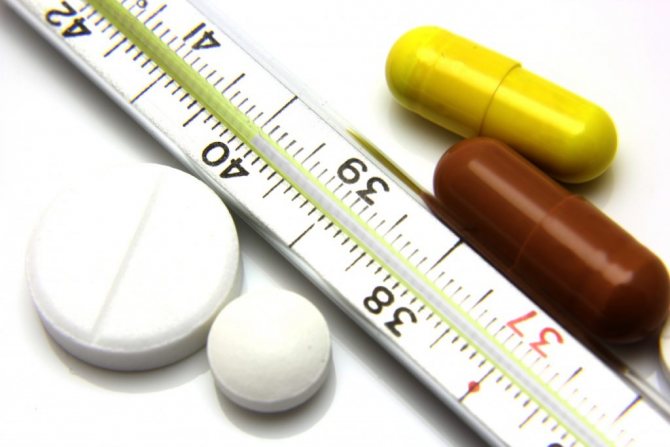
It is believed that up to 38.5 degrees the body itself fights the disease, and if the temperature still exceeds this figure, then it is necessary to take antipyretic drugs.
Antipyretics
Modern medicine does not accept a decrease in body temperature unless it rises above 38.5 degrees. It is believed that until this indicator is exceeded, the body itself fights the disease, and if the temperature still rises, then it is necessary to take antipyretic drugs. In case of acute viral infection, nursing mothers are allowed to use medications containing Paracetamol and Ibuprofen; these substances are safe for newborns if used in their pure form.
With a runny nose
A runny nose during ARVI can manifest itself independently, or be accompanied by a sore throat, which makes breathing slightly difficult. To treat a runny nose, medications are prescribed that are designed to constrict blood vessels and are available in the form of a spray or nasal drops. The following medications are recommended when breastfeeding:
- Sanorin;
- Otrivin;
- Nazol.
All medicines have different periods of action, but are approved for use by both pregnant and lactating women, as well as infants.
For sore throat and cough
Sore throat, sore throat and cough are very unpleasant symptoms of a cold. When breastfeeding, it is best to treat the throat locally, that is, use oral sprays. They have an antiseptic effect and are considered the safest from the point of view of the baby's health. Hexoral is considered to be the optimal remedy. An effective addition to medications would be gargling with a solution of iodine or salt and soda. Strepsils lozenges will help relieve a sore throat when coughing, as they relieve pain and disinfect the mucous membrane.
ARVI symptoms
Is it possible to breastfeed during ARVI? This question often worries young mothers who feel the impending signs of a cold. It is worth noting that the virus, when it settles into the human body, does not immediately give visible catarrhal manifestations, so a woman may not even suspect that she is already sick, spending all this time next to the baby, feeding him with breast milk. ARVI and breastfeeding may well occur together.
Signs of ARVI may vary, it all depends on which area they affected to a greater extent. They can appear from different sides: on the mucous membrane of the nose or mouth, respiratory organs or vision.
There are several characteristic symptoms of ARVI:
- general deterioration of condition;
- raising the thermometer readings;
- the appearance of sore throat, runny nose, cough, runny nose, constant sneezing;
- redness of the eyeballs, increased lacrimation;
- disturbances in the functioning of the digestive system may occur if the disease is provoked by rotavirus;
- lymph nodes increase in size.
We recommend reading: ARVI during pregnancy, 2nd trimester
In general, the acute period of the disease lasts up to 7 days, after which the patient’s condition begins to improve and return to normal life. However, there is a list of symptoms that should not be ignored.
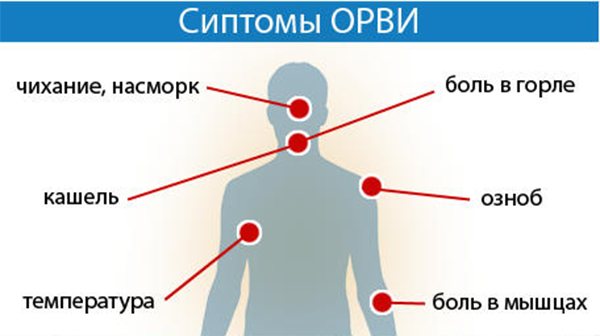
The following changes in a person’s condition require mandatory seeking of medical help:
- elevated body temperature that does not subside for more than five days in a row;
- severe headaches;
- disturbances of consciousness;
- the appearance of bruises or spider veins on the surface of the skin;
- the appearance of green, red or brown sputum as a result of coughing;
- severe pain in the chest.
Homeopathy
Nowadays, many mothers are still afraid to treat diseases with medications, trusting more in folk remedies or homeopathic ones. There is no official confirmation of the positive effects of such drugs; many doctors talk about a woman’s psychological mood and her beliefs, which are much stronger in homeopathy than any medicine.
Negative factors include possible allergies to components of homeopathic remedies and the use of alcohol for herbal tinctures,
which impairs milk production in a nursing woman. As a rule, the composition of the drugs is completely natural, and the most recognizable is Anaferon. Aflubin is similar in action; a well-advertised product promises to help nursing mothers in the fight against viruses. Traditional therapists are reluctant to prescribe homeopathy, but such drugs are sold in pharmacies without a prescription, so a woman’s desire to improve her health will be enough to purchase.
Medications
The control methods listed above are mandatory for every person who has contracted a viral disease. If the disease is neglected, a nursing woman may experience complications and pain, which will require the use of medications to eliminate. Despite the fact that many medications are prohibited, suitable medications are selected for colds.
The main thing is that the active ingredient of the drug does not penetrate into breast milk - then for the mother, treatment of ARVI will be quick, calm, and safe for the child.
Antiviral drugs
The variety of antiviral drugs that are displayed in pharmacy windows puts a person before a rather difficult choice. Ribovirin, Arbidol, and Aspirin are strictly prohibited when feeding a child. In addition, as practice shows, homeopathic medicines cause allergies in the child. These include Anaferon, Aflubin.
The safest antiviral drug is Viferon, which is also being replaced by the analogue Grippferon. The main component of these drugs is recombinant human interferon alpha, so they are effective and safe. However, the dosage, as well as the duration of treatment, must be determined by the doctor.

Antipyretics
To reduce the temperature of a pregnant or nursing mother, you will need to use a special antipyretic medicine. This is only advisable when the temperature rises above 38 degrees. If the temperature is 37-37.5 degrees, it is contraindicated to bring it down - this will only prevent the woman from fighting the disease.
The best antipyretics are ibuprofen and paracetamol, but they are allowed to be taken for a maximum of 3 days.
To combat respiratory infections during hepatitis B, they should be consumed only in their pure form. Modern drugs like TheraFlu or Coldrex have not been fully studied, so their effect on breastfeeding women is unknown.
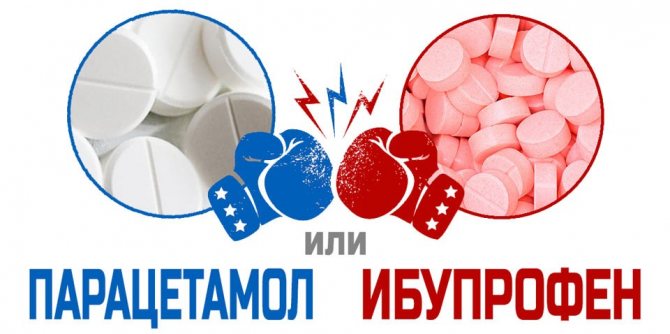
Remedies for runny nose and cough
A runny nose in a mother feeding her baby is, of course, an unpleasant phenomenon. But modern drops and nasal sprays are absolutely safe for children, so they can be safely used to alleviate their condition. The most popular remedies for the common cold include: Naphthyzin, Otrivin, Nafazolin, Rinazolin, Sanorin. These remedies eliminate a runny nose and reduce swelling on the nose. If you need a more effective drug, it is better to choose Nazol or Noxprey, which act for 8-10 hours.
We recommend reading: Amoxiclav during breastfeeding
To treat a cough in a nursing mother, it is better to choose herbal inhalation - this is the safest way to recover without harming the baby. Some cough syrups are used, but you should consult your doctor before using them. Cough and runny nose are traditional accompaniments of a cold, but with proper treatment they can be dealt with quite quickly.
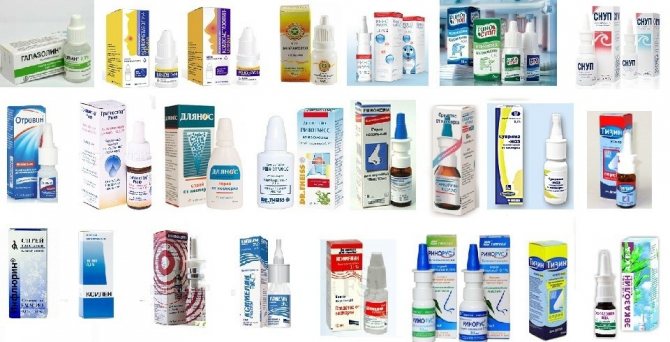
ethnoscience
Many breastfeeding mothers prefer to be treated with traditional recipes, since most of them are safe and will not harm the baby in any way. Peppermint, sage and some other herbs reduce breast milk production, while others can cause allergies in the baby. To maintain health during lactation, treatment must be competent. The following products are safe:
- Chamomile tea . Relieves inflammation, reduces fever, and is safe for children.
- Honey with milk . A classic remedy that helps a lot. But honey should be eaten with caution, as allergic reactions in the child are possible.
- Viburnum tea . Promotes the formation and removal of phlegm from the body, which speeds up recovery.
Folk remedies in the fight against ARVI
It’s not in vain that they say that there are so many people, so many opinions. One thing is for sure - if it is possible to avoid taking medications when feeding a child, then it is better to do just that. If there is no high fever and no complications with a cold, then it is quite possible to cure it with folk remedies. Well-known tea with lemon and honey or raspberries will help relieve excess swelling of the throat, as well as enrich the body with vitamin C, but this is a fairly allergenic composition, the use of which should be approached with caution. Black currant is considered a special remedy in the fight against the virus; a fruit drink made from this berry can be used to treat ARVI. The diet of a sick and nursing mother should be nutritious during this period; a good alternative to a hearty lunch would be chicken broth, which envelops the affected mucous membrane and promotes a speedy recovery.

If it is possible to avoid taking medications while breastfeeding, then it is better to do so.
How and with what to treat ARVI in a nursing mother
What to do if a nursing mother gets sick? First of all, you need to seek medical help. Only a doctor can make a correct diagnosis, as well as prescribe medications that will not harm the baby and will help his mother.

In addition, it is important to adhere to these recommendations:
- increase the amount of fluid you drink, making sure it is at a warm temperature. It can be plain water, teas with lemon, honey, dried fruit compotes, cranberry juices, lingonberries;
- eat only if you have an appetite. Choose light meals, such as chicken broth, fresh vegetables, fruits, and dairy products;
- Regularly ventilate the room, make sure that the air in the apartment is cool and humidified. If the mucous membranes are sufficiently moistened, viruses will not be able to settle and multiply on their surface;
- observe bed rest, which is necessary to mobilize all the internal resources of the body necessary for recovery.
We recommend reading: Stages of ARVI
Prevention
After childbirth, the body of a nursing mother is weakened, so preventive measures are not only recommended, but even useful, and against many diseases at once:
- in the off-season and during quarantine, it is better not to appear in public places;
- if you can’t avoid going to the clinic, then be sure to wear a mask;
- visit the children's pediatrician strictly at the allotted time when healthy children up to one year old are being treated;
- observe the temperature regime in clothing both at home and when going outside;
- ventilate the room and carry out wet cleaning;
- ensure healthy sleep and proper, balanced nutrition rich in vitamins.
Almost every woman suffers a cold during the breastfeeding period, but with due attention and care for her health, ARVI proceeds without any special complications. The main thing is not to start the process, monitor the child’s behavior, observe basic hygiene rules and adhere to treatment recommendations from competent specialists. After all, if the mother is healthy and rested, then the baby will be happy and friendly.
Should I breastfeed if my mother has had coronavirus?
If a mother has had coronavirus and is already feeling well, there is no reason to refuse to breastfeed her baby. In this case, the baby will only receive benefit in the form of antibodies. At the moment, there is no vaccine that would be used throughout the world and that would provide protection against the virus for more than a few months. And in such conditions, mother's milk with antibodies is the best a newborn can receive.
The World Health Organization strongly recommends that you continue to breastfeed your baby whenever possible, especially in cases where the mother (albeit with confirmed COVID-19) feels well. The benefits of breast milk (especially in the first 6 months, when the baby is not yet familiar with other foods) outweigh the potential risk of contracting coronavirus.
If a woman becomes seriously ill with COVID-19 and stops breastfeeding, she can resume it when she recovers and feels well. But after a break, problems with lactation may arise - in this case, it is recommended to consult a breastfeeding specialist.
To make the process of privacy with your baby more comfortable, order milksnud from the Proud Mom online store. This accessory will allow you to breastfeed your baby in any public place. You will be able to cover yourself and feed your baby without discomfort. Snood capes from our store catalog are made from fabric with a high cotton content (95%), so they do not cause unpleasant sensations when in contact with the skin.
Take care of yourself and your health and don’t be afraid to breastfeed your baby during coronavirus if you feel well. WHO confirms that refusing to feed in this case makes no sense.





